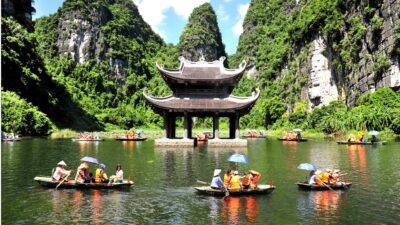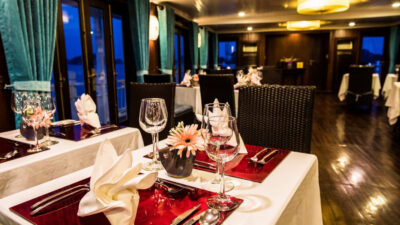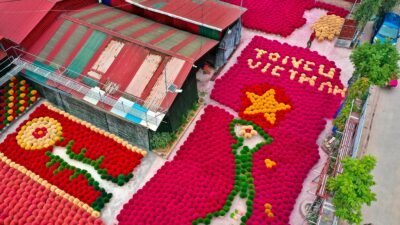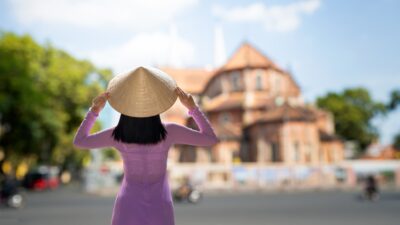Vietnam, a Southeast Asian jewel known for its stunning landscapes like Ha Long Bay, rich history evident in sites like the Imperial City of Hue, and vibrant culture, is rapidly climbing the ranks as a top travel destination for global tourists, including a growing number from India. In the first half of 2024 alone, Vietnam welcomed 8.8 million international visitors. However, when planning any international trip, especially from India, the crucial question arises: Is Vietnam a safe country to visit?
The short answer is a resounding YES. Vietnam is widely regarded as a safe destination, offering incredible experiences for solo travellers, families, and groups alike. This guide provides a detailed analysis of safety in Vietnam, specifically addressing potential concerns for Indian tourists, covering everything from political stability and crime rates to health precautions and unique cultural insights, helping you plan a secure and unforgettable journey.
Vietnam’s Safety Profile: A Stable and Welcoming Environment
Vietnam boasts a strong safety record, underpinned by political stability and a welcoming attitude towards tourists. Several key indicators highlight why it’s considered a safe country for travel:
- Political Stability: Vietnam ranks favorably in global safety indexes. It secured the 41st position out of 163 countries in the 2024 Global Peace Index (GPI), indicating a high degree of peace and stability. Civil unrest is rare, significantly lower than some neighbouring countries.
- Low Violent Crime: Violent crimes such as assault or armed robbery against tourists are relatively rare. The focus of concern is more on petty crime, which is manageable with standard precautions.
- Terrorism Risk: According to the 2024 Global Terrorism Index, Vietnam has a 0% terrorism risk, making it one of the safest destinations in Southeast Asia in this regard.
- Dedicated Tourist Support: Major cities like Hanoi and Ho Chi Minh City have established dedicated tourist police forces to assist foreign visitors, enhancing the overall sense of security.
READ MORE: Briefs about Vietnam visa for Indians
Understanding and Respecting Cultural Norms

A fundamental aspect of ensuring a smooth and safe trip to Vietnam is respecting local customs and traditions. Vietnamese people are known for their friendliness, but Vietnam remains a relatively conservative country. By demonstrating an understanding of local etiquette and showing consideration for local values, you’ll be more likely to have positive interactions with the Vietnamese people and avoid causing any unintentional offense.
- Dress Modestly: Especially when visiting temples, pagodas, and other religious sites, cover your shoulders and knees.
- Public Behavior: Avoid overt public displays of affection.
- Learn Basic Phrases: A simple “Xin chào” (Hello) or “Cảm ơn” (Thank you) can go a long way.
- Photography Etiquette: Always ask for permission before taking photos of people, and avoid photographing military or sensitive government installations.
Respecting these norms contributes significantly to your positive experience and reinforces Vietnam’s reputation for tourist safety.
Potential Risks in Vietnam and How to Mitigate Them
While Vietnam offers a high degree of safety, being aware of potential risks helps ensure a trouble-free vacation. Here’s how to address common concerns:
Petty Crime and Scams: Staying Vigilant
- The Risk: Petty theft, like pickpocketing and bag snatching, is the most common crime affecting tourists, especially in crowded areas of Ho Chi Minh City and Hanoi, or during festivals like Tet (Lunar New Year). Numbeo’s Crime Index gives Vietnam a moderate score. Scams involving taxis (overcharging), tour operators (fake tours), or street vendors (inflated prices) can also occur.
- Mitigation:
- Keep valuables (passport, electronics) secure in hotel safes or locked bags. Carry copies of documents.
- Avoid flaunting expensive items. Use a money belt.
- Be vigilant in crowded markets, bus stations, and tourist sites. Keep bags closed and in sight.
- For motorbike riders: Store bags securely under the seat or hooked in front.
- Research reputable tour companies. Use trusted taxi brands like Mai Linh or Vinasun, or reliable ride-hailing apps like Grab.
- Trust your instincts – if an offer seems too good to be true, it probably is. Be wary of unsolicited help or overly friendly strangers proposing deals.
Traffic Safety: Navigating Vietnam’s Roads
- The Risk: Road safety is a significant issue. Vietnam has one of the highest rates of road traffic accidents in Southeast Asia, largely due to crowded roads, the sheer volume of motorbikes, and sometimes disregard for traffic laws. The US State Department specifically advises caution regarding traffic.
- Mitigation:
- Avoid renting motorbikes unless you are experienced and possess the required Vietnamese license (an Indian or international license is often insufficient).
- Use reputable taxis (Mai Linh, Vinasun) or ride-hailing apps (Grab) for safer road travel.
- Exercise extreme caution when crossing streets – look both ways multiple times.
- If riding a motorbike (as passenger or driver), always wear a helmet (mandatory).
- Consider safer alternatives like domestic flights (Vietnam Airlines, Bamboo Airways, VietJet are reputable) or trains for long distances, which are generally considered safe.
Health and Medical Considerations
- The Risk: Potential health risks include mosquito-borne diseases like Dengue Fever (common in tropical regions) and food/water safety issues. While healthcare quality is improving, facilities outside major cities might be basic. International hospitals in Hanoi and HCMC offer higher standards but can be expensive.
- Mitigation:
- Use insect repellent containing DEET, especially in rural or humid areas.
- Drink only bottled or boiled water. Avoid ice unless sure it’s purified.
- Eat at reputable restaurants and street food stalls with high turnover where food is cooked fresh. Be cautious with raw or undercooked items.
- Carry any necessary prescription medications with documentation.
- Crucially, purchase comprehensive travel insurance covering medical emergencies, including medical evacuation, as severe cases might require transfer to nearby countries like Thailand.
Environmental Factors: Weather and Air Quality
- The Risk: Vietnam’s extensive coastline makes it susceptible to natural disasters, particularly typhoons and flooding during the monsoon season (typically May-October). Air quality can also be an issue, especially in major cities like Hanoi.
- Mitigation:
- Check weather forecasts before and during your trip, especially during monsoon season. Be prepared to adjust plans if necessary.
- Download weather alert apps.
- For air quality, check real-time AQI updates. Consider wearing masks on heavily polluted days if you have respiratory sensitivities.
Unique Perspectives for Indian Travellers to Vietnam
While the general safety advice applies universally, here are some unique points and insights particularly relevant for visitors from India, drawing from traveller experiences and addressing common perceptions:
- Direct Safety Comparison: Some Indian travellers who have visited extensively report feeling as safe, or even safer, in Vietnam than in parts of India, citing the ability to walk alone late at night in cities without major concerns – a perspective highlighting Vietnam’s perceived security.
- Addressing Under-Tourism from India: Why don’t more Indians visit? Common misconceptions include:
- Perceived High Cost: This is largely untrue; Vietnam is one of Southeast Asia’s most affordable destinations.
- Lack of Awareness: Vietnam might be overshadowed by heavy marketing from destinations like Thailand or Malaysia.
- Outdated Perceptions: Some might incorrectly associate Vietnam with its wartime past; today, it’s incredibly peaceful.
- Stereotypes/Confusion: Baseless associations with other countries.
Understanding these helps contextualize Vietnam as an accessible, affordable, and peaceful option.
- Surprising Popularity of Indian Culture: Interestingly, Indian culture, particularly TV serials, is quite popular in Vietnam. Locals might recognize you as Indian and are generally very welcoming. You’ll even find Indian restaurants in major tourist hubs.
- No Specific Threats: It’s important to reiterate that there are no known specific safety threats or targeted crimes against Indian tourists in Vietnam. The risks are general travel risks applicable to all nationalities. Racism is reported as very low.
Essential Practical Safety Tips for Your Vietnam Trip
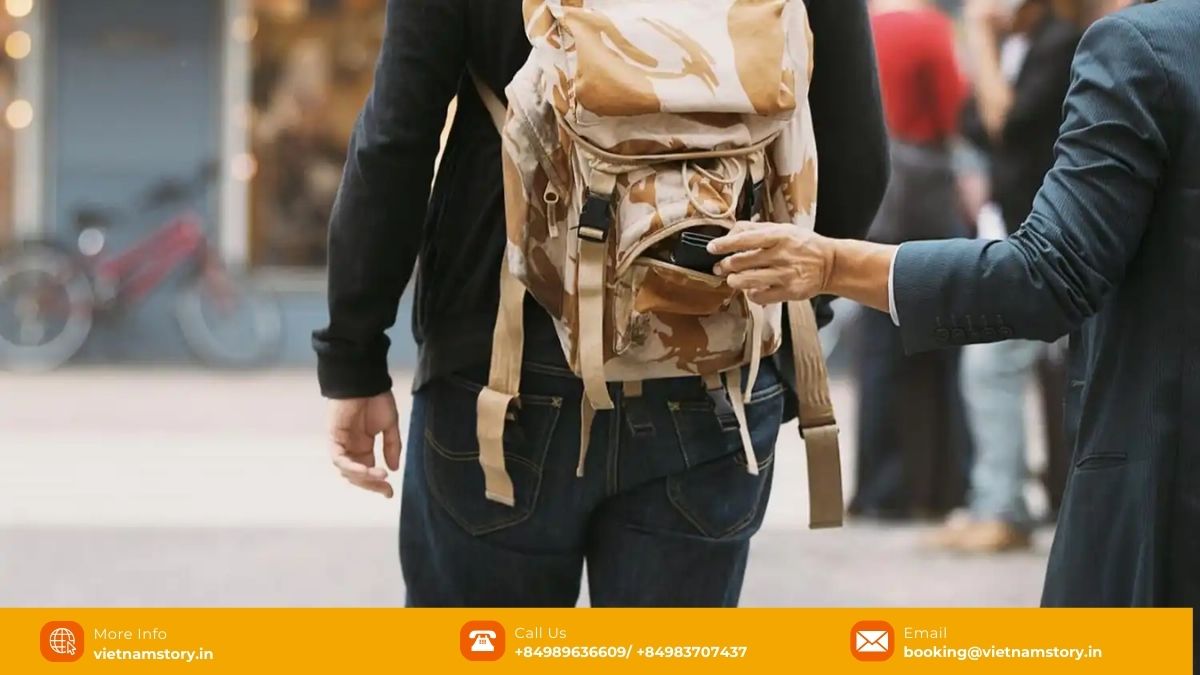
Enhance your safety in Vietnam with these actionable tips:
- Get Comprehensive Travel Insurance: This is non-negotiable. Ensure it covers medical emergencies (including evacuation), theft, cancellations, and activities you plan.
- Secure Your Belongings: Use hotel safes. Carry photocopies of your passport/visa. Use a money belt or anti-theft bag. Avoid displaying excessive cash or expensive items.
- Stay Connected: Get a local Vietnamese SIM card for easy navigation (maps) and communication.
- Emergency Numbers: Save these local numbers: Police – 113, Fire – 114, Ambulance – 115.
- Be Aware of Local Laws: Understand regulations regarding drugs (illegal and severely punished), gambling (illegal), and respectful behavior.
- Stay Informed: Check travel advisories from the Indian government or reputable travel agencies before departure and monitor local news during your stay.
- Trustworthy Transport: Stick to recommended taxi companies (Mai Linh, Vinasun) or reliable apps like Grab. Agree on fares beforehand for cyclos or less formal transport. See more: The most popular modes of transport in Vietnam
- Count Your Change: Be mindful when handling Vietnamese Dong (VND), as large denominations can be confusing. Double-check your change after purchases.
Areas Requiring Extra Vigilance
While generally safe, exercise increased awareness in:
- Crowded Tourist Hotspots: Markets (like Ben Thanh Market in HCMC), popular attractions, bus/train stations – prime spots for pickpockets.
- Nighttime: Avoid walking alone in poorly lit or deserted areas. Stick to well-populated streets if out late. Be cautious near bars, especially regarding drink spiking.
- Remote Areas: If venturing off the beaten path, go with a reputable guide or inform someone of your plans.
Conclusion: Vietnam Awaits – Travel Safely and Confidently
So, is Vietnam a safe country to visit for Indian tourists? Absolutely. It offers a rich tapestry of experiences in a generally secure and welcoming environment. While minor risks like petty crime and traffic hazards exist – common to many popular destinations – they are manageable with awareness and standard precautions.
By respecting local culture, staying vigilant in busy areas, making informed choices about food and transport, and securing comprehensive travel insurance, you can confidently explore the breathtaking beauty and fascinating culture of Vietnam. Debunking myths about cost and safety reveals Vietnam as an accessible, affordable, and profoundly rewarding destination for travellers from India.
Plan your adventure, embrace the vibrant energy, and prepare for an unforgettable – and safe – journey through this captivating country.
Read more:
International Airports in Vietnam
